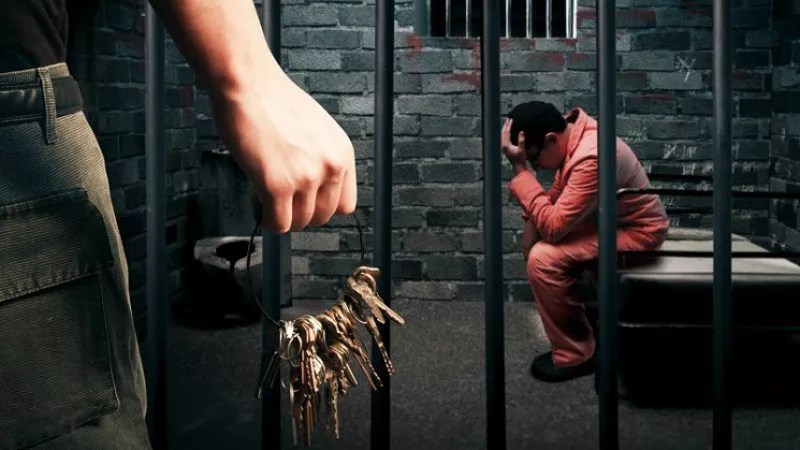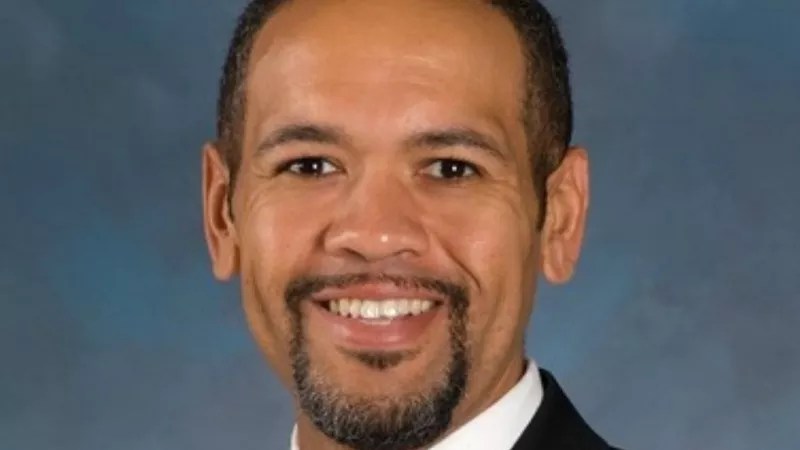
Thinkstock file photo

Audio By Carbonatix
According to attorney Iris Eytan, Colorado has been warehousing the mentally ill in jails for months at a time without bothering to evaluate their condition or ordering any treatment that might help them. Even worse, she says, the situation has dragged on for years.
“It’s been a decade – a decade exactly,” notes Eytan, whose firm, Eytan Nielsen LLC, represents Disability Law Colorado (DLC) in a recently filed lawsuit. “We’ve been fighting this since 2008.”
The suit is directed against Reggie Bicha, the Colorado Department of Human Services’ executive director, and Ronald Hale, superintendent of the Colorado Mental Health Institute at Pueblo. The document is accessible below in its entirety, but here’s an introductory passage that sums up the complaint:
Despite consenting to two court-approved settlement agreements with DLC, the State of Colorado, through the Department of Human Services and cabinet-level officials, continues to disregard the constitutional rights of some of the most vulnerable members of our community – individuals who suffer from severe mental illness – by failing to provide timely competency examinations and restorative treatment. Through inaction, the State continues to unlawfully jail presumed innocent people solely because they suffer from mental illness. This situation is unconstitutional, unconscionable and unacceptable.
The State claims that it lacks sufficient capacity to meet the needs of this helpless population, but ignores that it is statutorily charged with providing these mental health services and must timely do so to comport with due process. There should be no excuses, particularly after ten years of largely empty promises to fix the problem and address foreseeable increases in referrals. Rather than partner with and fund community mental health treatment centers or initiate and support legislative changes to remedy the current situation, the State has unconstitutionally used county jails as its own private self-storage to house the mentally ill. County jails are ill-equipped to provide the necessary mental health care and treatment to these individuals and lengthy stays further jeopardize their health and welfare.
Eytan traces the history of the battle.

Iris Eytan in 2016, when she served as the defense attorney in the Tom Fallis case.
“Ten years ago, I received information from a public defender that two people were accused of stealing a bike worth more than $500 – a felony offense,” she says. “One of them approached by law enforcement was hallucinating, in a completely different world, in need of mental health treatment and not really aware of his circumstances. He was unable to communicate with his attorney, didn’t understand the court system and was unable to comprehend simple information because of his mental health impairment.”
The public defender “asked for a competency evaluation to determine if he was competent to proceed in the criminal case,” she goes on. “But six months went by and he was never evaluated.”
The Colorado Department of Human Services is responsible for these evaluations, “and also for when the court orders need to be restored because they’ve been found incompetent,” Eytan explains. “It’s a very high burden to be found incompetent. That means an individual isn’t only mentally ill, but that he’s unable to comprehend what’s going on.”
Over the course of trying to get help for this suspect, Eytan made a disturbing discovery: “He wasn’t the only one waiting months and months on really low-level offenses and unable to bond out. In 2008, there were actually eighty people waiting. So we filed a contempt action against the department, because it’s unconstitutional to unreasonably hold someone who’s been charged with a crime and not provide the treatment to get them back on track. And many of them were charged with misdemeanors. They could have served their entire time and been released if the state had done its job and they weren’t mentally ill. It was a Fourteenth Amendment violation that they were being warehoused and not getting court-ordered evaluation.”
Eventually, Eytan and the State of Colorado reached what she describes as “a class-action resolution. They said that once they built their big facility in Pueblo, they felt they would have enough beds so they wouldn’t encounter this problem anymore. Then they would commit to doing timely evaluations and restorations, and we would go away.”
Things worked out differently.
“In 2011, we found out the situation had grown out of control, to more than 100 people,” she recalls. “Now, that may not sound like that many, but you have to take into account that if there are 100 people every day, that adds up to a lot more people over the span of a year – about 2,000, we estimated.”

Reggie Bicha, executive director of the Colorado Department of Human Services, is the lead defendant in the lawsuit.
So Eytan headed back to federal court to file “a challenge on Fourteenth Amendment grounds that this was inhumane. And we came up with a ten-year settlement agreement that they would evaluate and treat them within 28 days from receiving the order – and then they’d have another 28 days to either restore them to competency or determine that they were incompetent.”
This standard “is very lenient compared to other states,” Eytan points out. “In Washington and Oregon, it’s seven and fourteen days. But in Colorado, we pretty much gave them sixty days – and that’s not even from the date of arrest. It takes time to get in front of a judge, get materials to the hospitals and do evaluations. They wouldn’t just be sitting there for 28 days. They could still be there for four months. But in 2011, there were some people who were sitting in jail for a year – so we made this agreement. It was going to last for ten years, and the state would get a year credit for every good year where they met the standard and were compliant with the agreement.”
Unfortunately, Eytan continues, the pledges weren’t upheld. Following the 2012 signing of the pact, she says, “they were required to give us data showing they were on time and everything was going smoothly. But apparently months had gone by where they were falsifying the data they were giving to us. By 2014, the wait list had skyrocketed to over 150 people at any given time.”
For this reason, the settlement agreement was reopened in October 2015 under the auspices of a federal magistrate. The following year, another deal was reached – “but this time, we added a few little extra, important items,” Eytan allows. “It basically boiled down to getting an independent consultant, similar to an independent monitor, because we were being lied to, and as lawyers and advocates, we weren’t able to track if they were giving us true or false information. The system was clearly still broken and needed to have an injection of expertise to help the state wade through this obviously corrupt problem they couldn’t work themselves out of.”
Cut to June 22, 2017, when Colorado officials “filed a notice with us that said they were not able to keep up this time frame and they needed a six-month break where they could get the system back in shape,” she recounts. “But on December 22, 2017, the wait list had gone from eighty people six months earlier to 140 people a day.”
The situation has only worsened since then. As of June, Eytan says, “they were up to 180 people a day, and the state has done absolutely nothing other than ask the legislature for more beds. But they can’t keep invoking this excuse every six months. The department will say, ‘We don’t have enough money for beds, and there’s been a spike in referrals – and we can’t possibly keep up with them.’ But that’s not true. The biggest spike in referrals we’ve seen was eight years ago. And they’ve had ten years to make sure people can move reasonably quickly through the jail system, where they’re not being held in a law enforcement environment and they can get the treatment they need.”
Hence yet another lawsuit – and more waiting for mentally ill inmates in Colorado jails. Click to access Disability Law Colorado v. Reggie Bicha, et al.